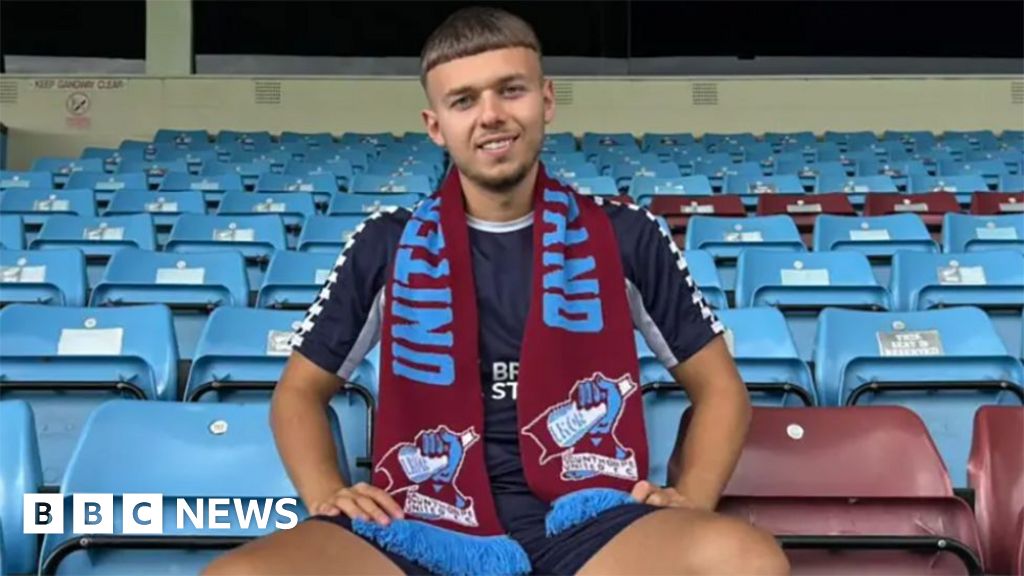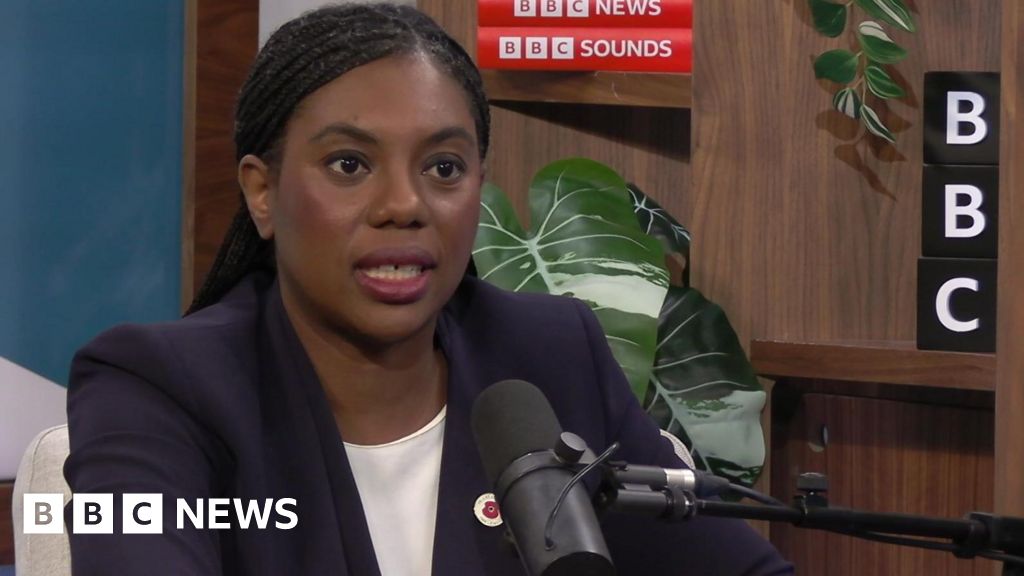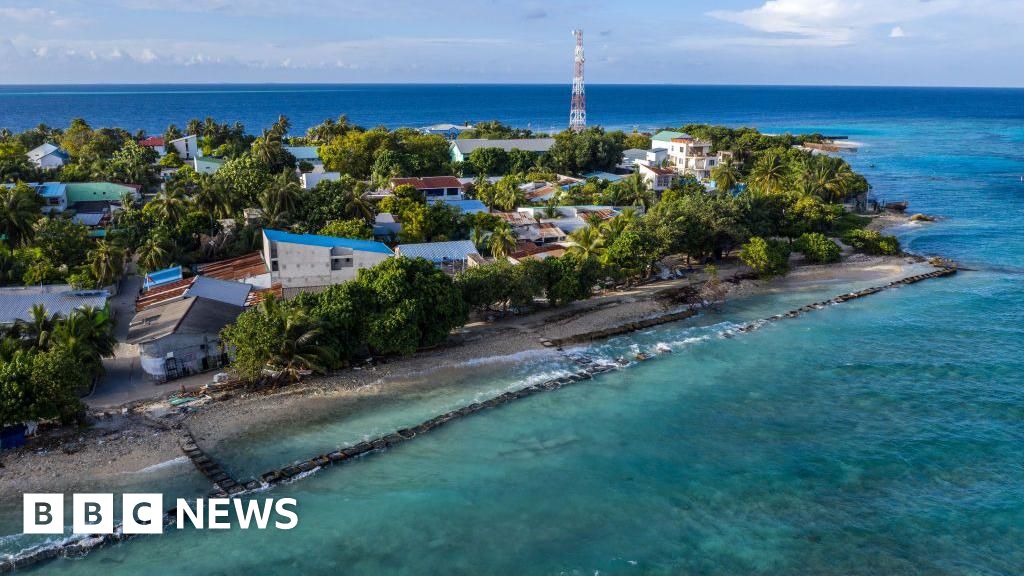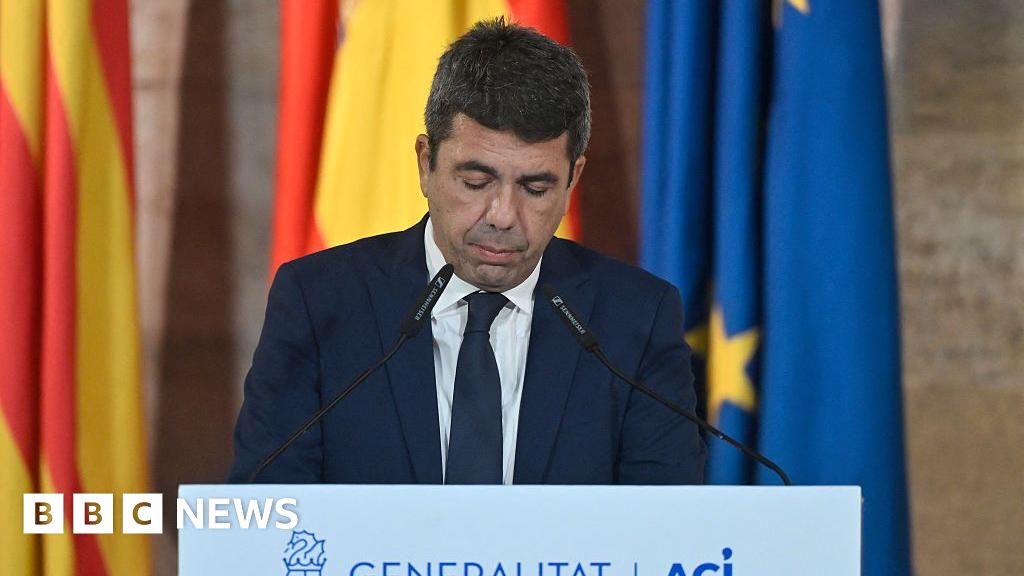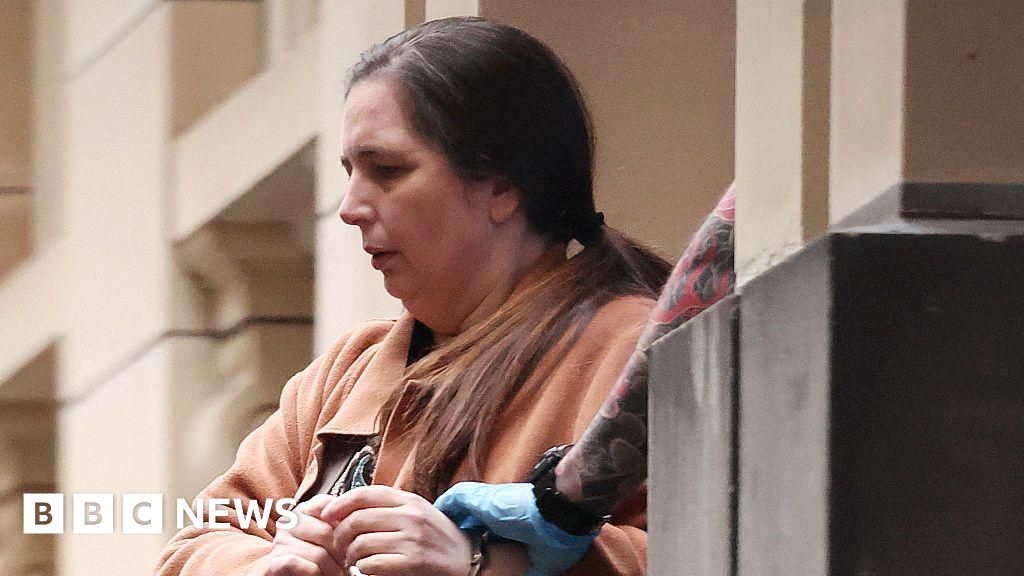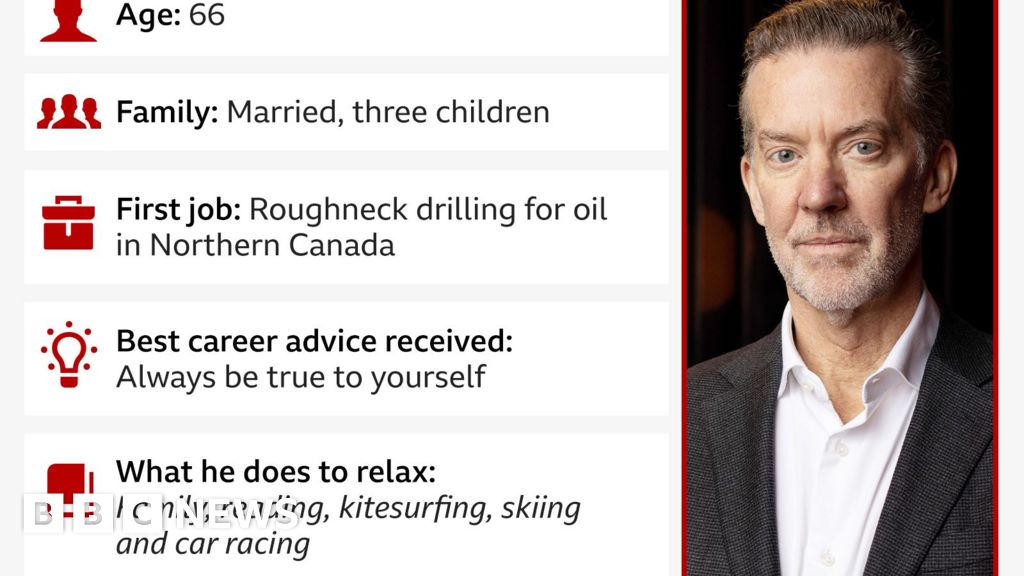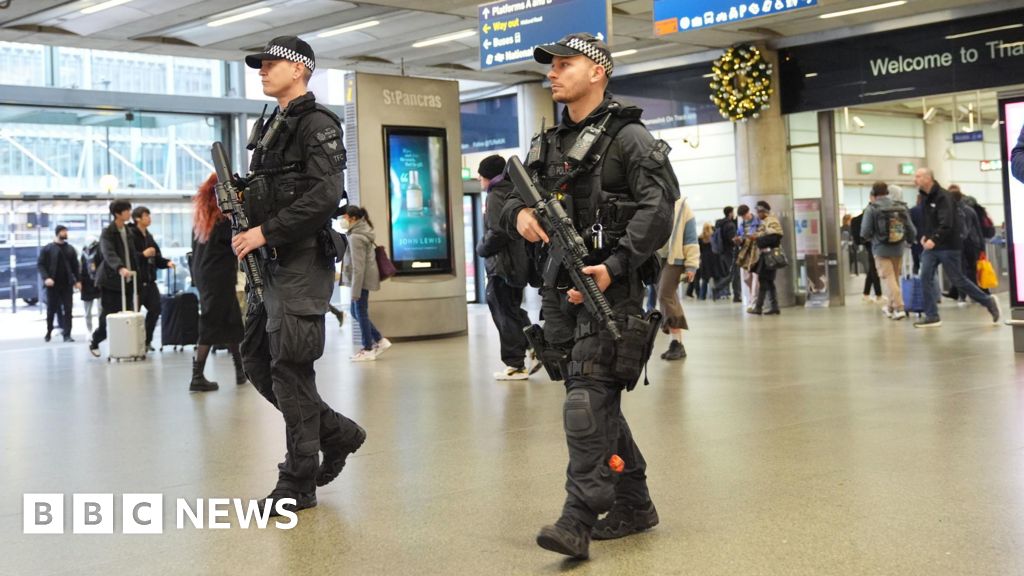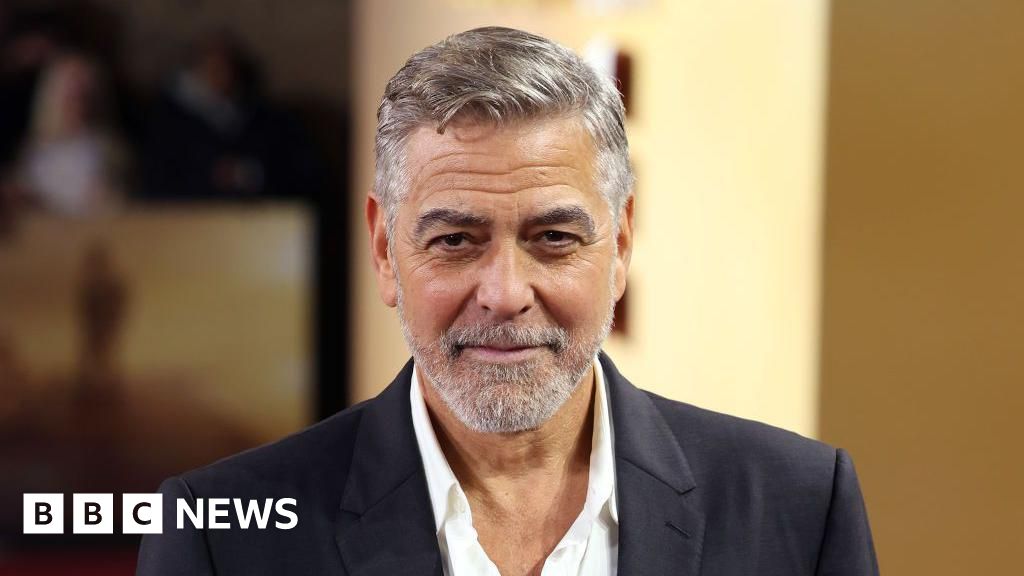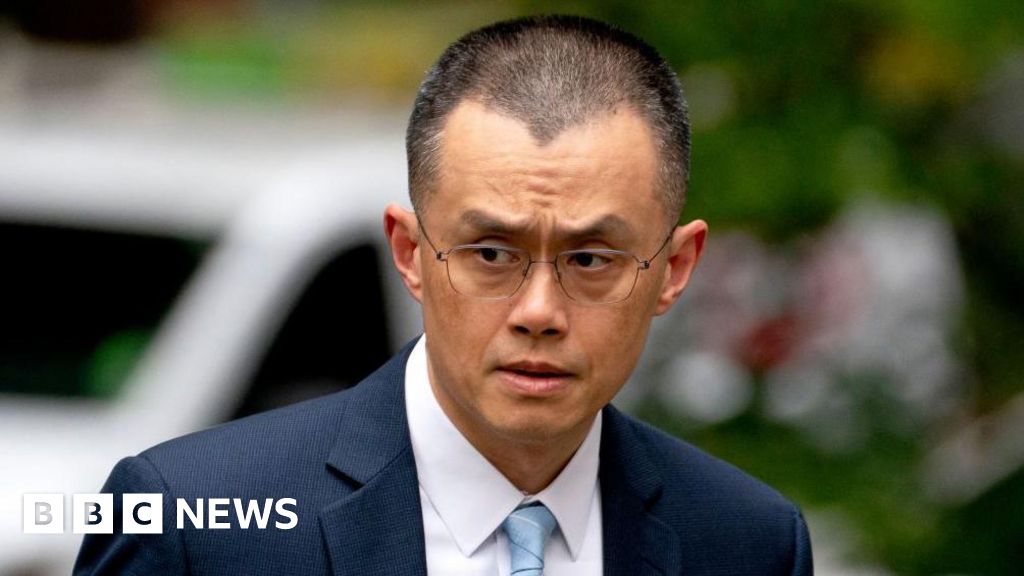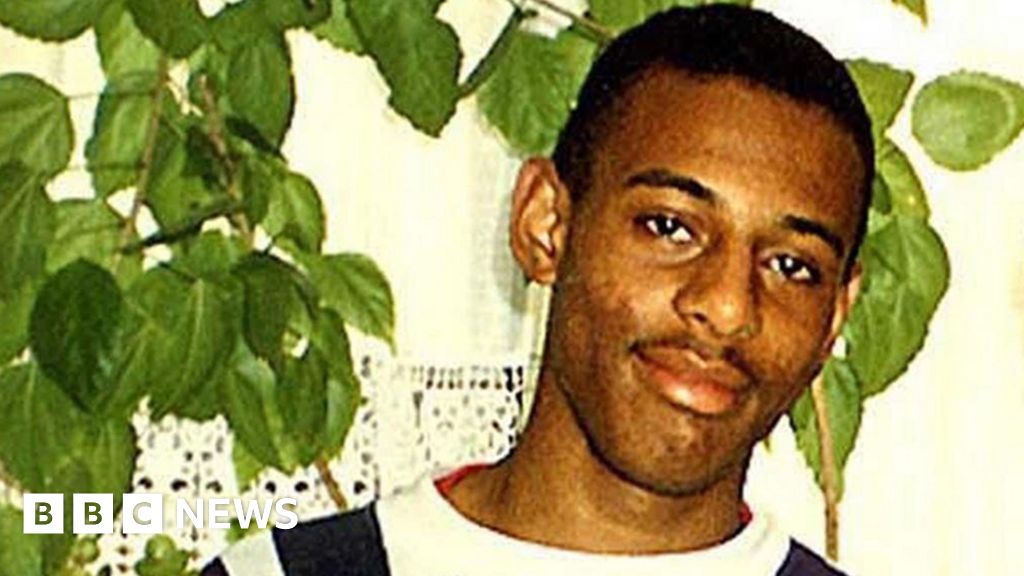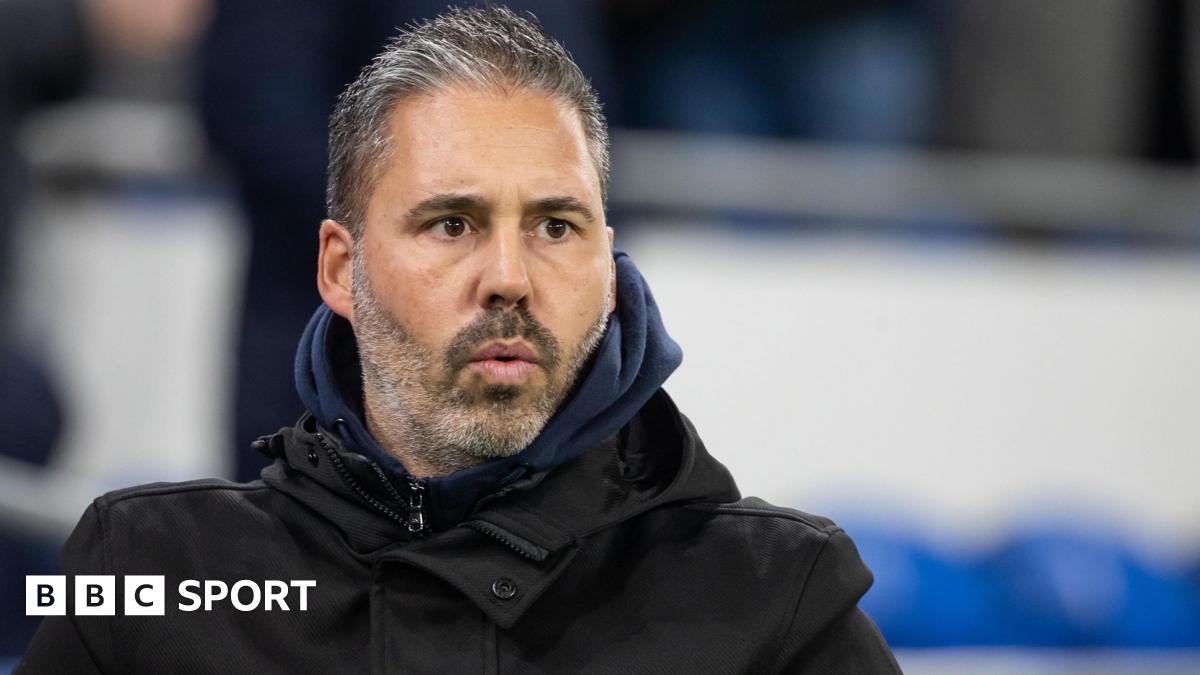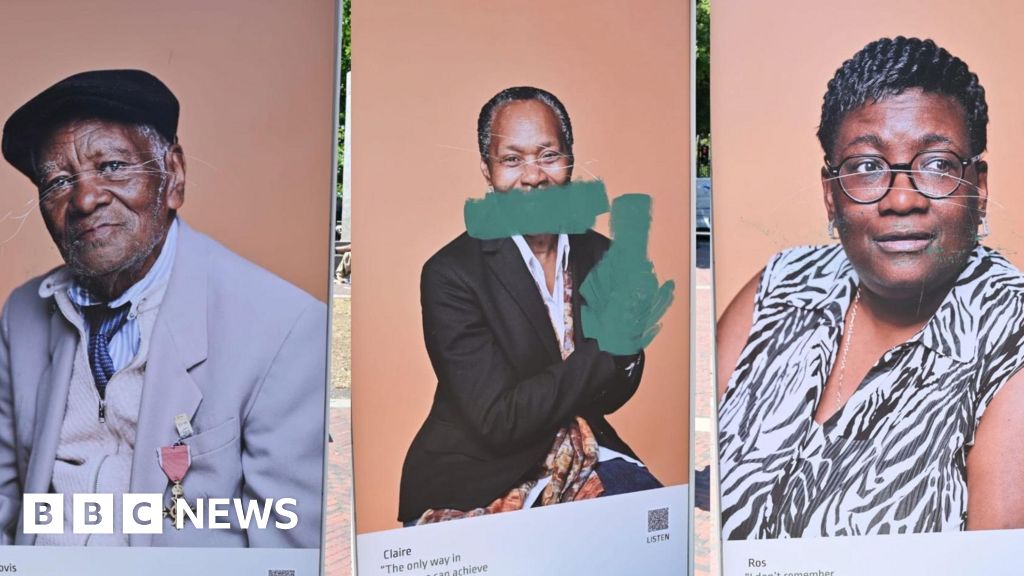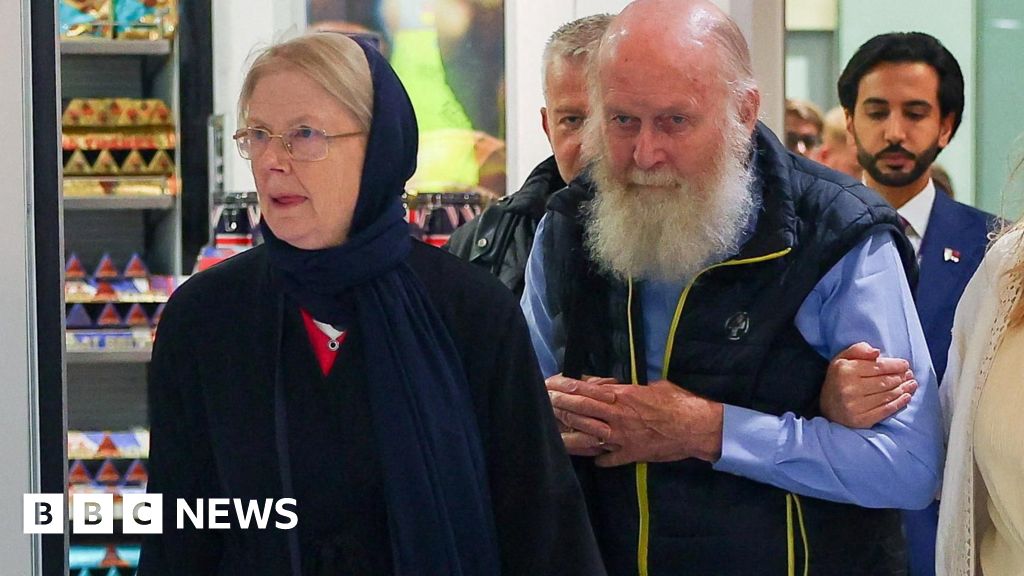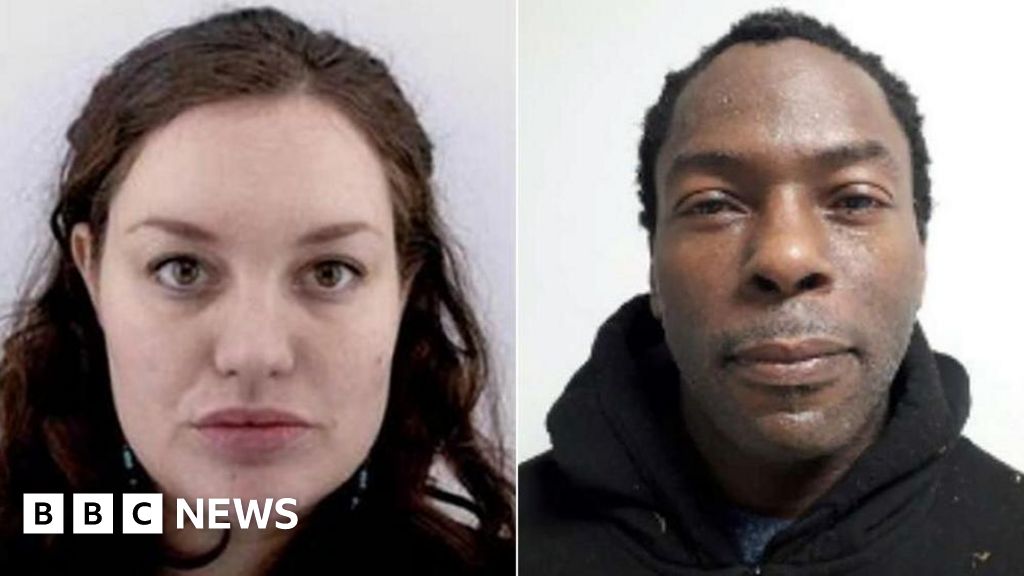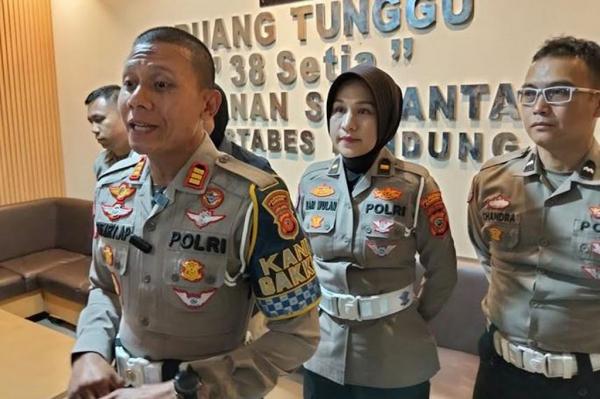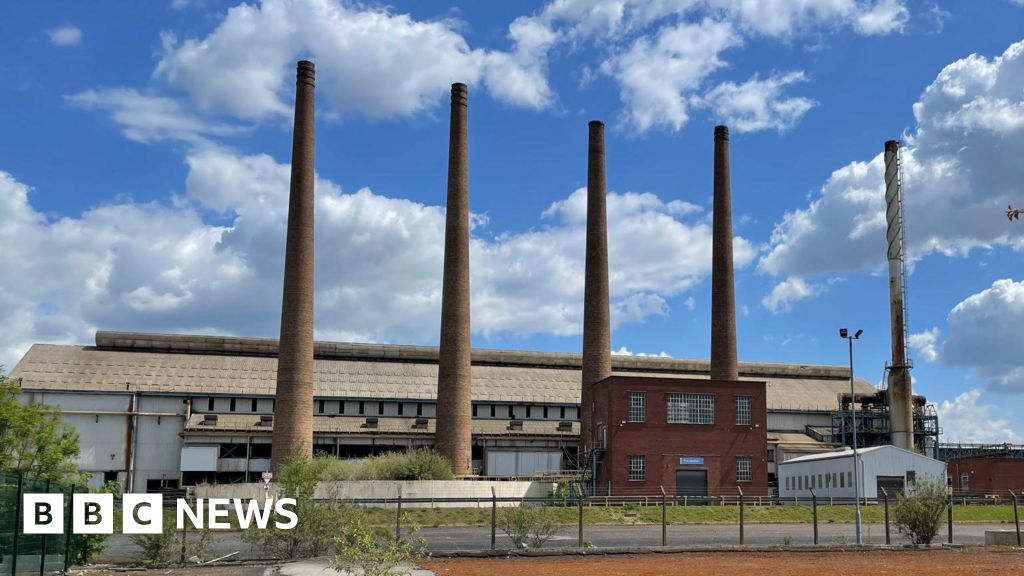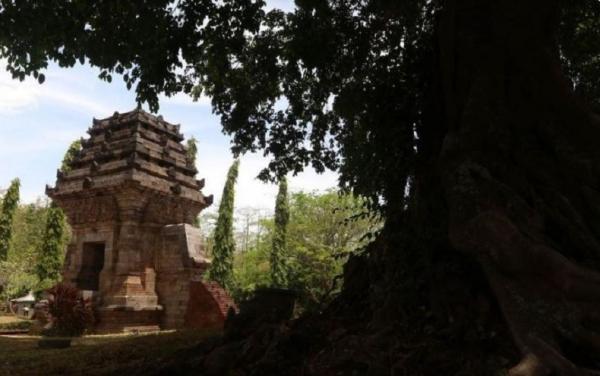Damian GrammaticasPolitical correspondent

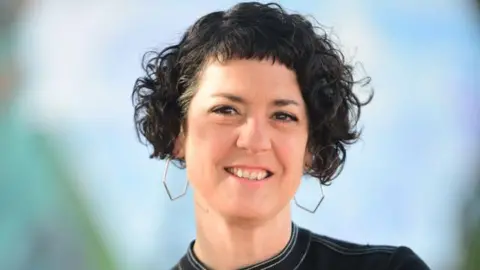 Laura Murphy
Laura Murphy
Professor Laura Murphy says her academic freedom was traded for access to the Chinese student market
China waged a campaign of harassment and intimidation directed at a UK university to get it to shut down sensitive research into alleged human rights abuses, documents seen by the BBC show.
Sheffield Hallam University staff in China were threatened by individuals described by them as being from China's National Security Service who demanded the research being done in Sheffield be halted.
And access to the university's websites from China was blocked, impeding its ability to recruit Chinese students, in a campaign of threats and intimidation lasting more than two years.
In an internal email from July 2024, university officials said "attempting to retain the business in China and publication of the research are now untenable bedfellows".
When the UK government learned of the case, the then Foreign Secretary David Lammy issued a warning to his Chinese counterpart that it would not tolerate attempts to suppress academic freedoms at UK universities, the BBC understands.
The issue was also raised with China's most senior education minister.
China was seeking to halt research by Laura Murphy, professor of human rights and contemporary slavery at Sheffield Hallam, into allegations Uyghur Muslims in the north-western region of Xinjiang were subject to forced labour.
China has faced accusations – always firmly denied – that it has committed crimes against humanity and possibly genocide against the Uyghur population.
In late 2024, following pressure from the Chinese state and a separate defamation law suit against the university, Sheffield Hallam decided not to publish a final piece of research by Prof Murphy and her team into forced labour.
And in early 2025, university administrators told her that she could "not continue with her research into supply chains and forced labour in China".
She initiated legal action against the university for failing in its duty to protect her academic freedom and she submitted a "subject access request" demanding Sheffield Hallam hand over any relevant internal documents.
The documents she obtained showed the university "had negotiated directly with a foreign intelligence service to trade my academic freedom for access to the Chinese student market," she told the BBC.
She added: "I'd never seen anything quite so patently explicit about the extent to which a university would go to ensure that they have Chinese student income."

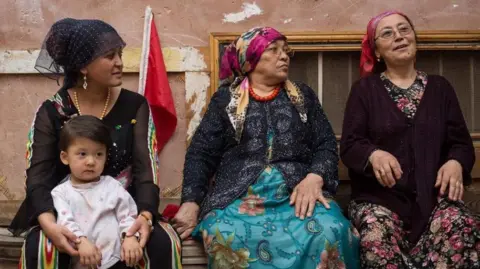 Getty Images
Getty Images
The Uyghurs are the largest minority ethnic group in China's north-western province of Xinjiang
Sheffield Hallam has now apologised to Prof Murphy and said she can resume her work.
A spokesperson said "the university's decision to not continue with Professor Laura Murphy's research was taken based on our understanding of a complex set of circumstances at the time, including being unable to secure the necessary professional indemnity insurance".
They said the university wished to "make clear our commitment to supporting her research and to securing and promoting freedom of speech and academic freedom within the law".
But the general secretary of the University and College Union, Jo Grady, said "it is incredibly worrying that Sheffield Hallam appears to have attempted to silence its own professor on behalf of a foreign government".
She added: "Given the censorship Hallam has seemingly engaged in, it now needs to set out how it will ensure its academics will be supported to research freely and protected from overreach by foreign powers."
A government spokesperson told the BBC "any attempt by a foreign state to intimidate, harass or harm individuals in the UK will not be tolerated, and the government has made this clear to Beijing after learning of this case".

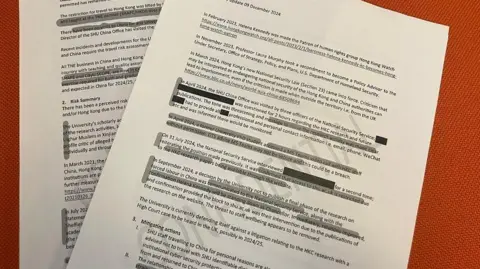
Internal documents shared with the BBC show Sheffield Hallam under pressure
It all began so differently.
When, in 2021, Prof Murphy published a major report into Uhygur forced labour in the solar panel industry, the director of the Helena Kennedy Centre (HKC), the department in which her unit was based, wrote to congratulate her.
"This is an exceptional moment in the history of the HKC... we are all exceptionally proud of this body of work which rightly shines light on the blatant abuse of Uyghur tights (sic) in China.. Well done Laura!"
Over the following months her unit published four reports, including into car parts and cotton for clothing, trying to trace supply chains and highlight where goods reaching western consumers may have been produced with inputs made with forced labour in Xinjiang.
China denies such practices occur.
The Chinese Embassy in London told the BBC "the Helena Kennedy Centre at the Sheffield Hallam University has released multiple fake reports on Xinjiang that are seriously flawed".
"It has been revealed that some authors of these reports received funding from certain US agencies," the Embassy added.
Prof Murphy told the BBC she has received funding over the course of her career from the US National Endowment for Humanities for work on slave narratives, the US Department of Justice for work on human trafficking in New Orleans, and more recently from USAID, the US State Department and the UK Foreign Office for her work on China.
The Chinese Embassy said the allegations of "forced labor" in her reports "cannot withstand basic fact-check".
"While presenting itself as an academic body, the Centre has in practice acted as a vehicle for politicised and disinformation-driven narratives deployed by anti-China forces," the embassy added.
The university realised it was coming in for criticism from China as far back as 2022.
An internal university email from August of that year, seen by the BBC, said China's foreign ministry had issued a statement "denouncing us as being in the 'disreputable vanguard of anti-China rhetoric'".
The email said the university had admitted 500 Chinese students in 2018, but numbers had collapsed in the pandemic and had not bounced back like it had in other markets.
It expressed concern that the Chinese government's criticisms could result in a "boycott" by prospective students and recruitment agents.
In total, the documents show Sheffield had earned £3.8m in 2021/22 from China and Hong Kong.
Later in August 2022 the university's English language testing website used by Chinese students to take tests before coming to Sheffield had been "shut down in China temporarily".
Over the next two years the pressure escalated dramatically leading university officials to write in an email in May 2024 that "the continuation of the university's scholarly activity with and in China and Hong Kong has been placed at risk because of the research activities, led by Professor Laura Murphy, in relation to alleged persecution of Uighur Muslims in Xinjiang Province, China".
An internal "risk summary," dated 9 December 2024, detailed what had happened.
In August 2022, China had blocked access to the university's websites. All email communication from and to the university was disabled.
It meant students in China due to study at Sheffield Hallam were unable to access the enrolment website, arrange their welcome or airport pick up in the UK, or course information.
The university said this had "undoubtedly had a negative impact on recruitment" in 23/24, with "anticipated further decline in 24/25".
And, in 2024, the intimidation began.

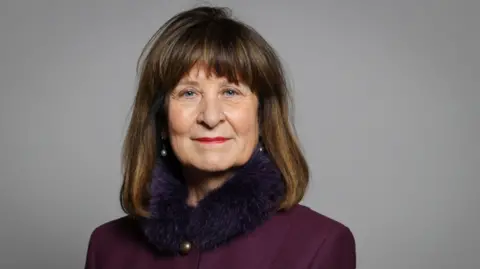 UK Parliament
UK Parliament
Baroness Kennedy says UK universities are vulnerable to pressure from China
"Things in Beijing have kicked off," an internal email from 18 April 2024 said.
The risk summary detailed that "three officers of the National Security Service" visited Sheffield Hallam's office in China.
A local staff member was "questioned for two hours regarding the HKC research and future publications.
"The tone was threatening and message to cease the research activity was made clear."
At another visit, security officers said the internet issues were because the Uyghur research was available on the university website.
Finally, in September 2024, the document states "a decision by the university not to publish a final phase of the research on forced labour in China was communicated to the National Security Service .. immediately relations improved and the threat to staff wellbeing appears to be removed".
Sheffield Hallam says these internal communications need to be seen in context and do not represent university policy.
Complicating things for Sheffield Hallam had been a report by its Forced Labour Lab published December 2023 into clothing supply chains connected to Xinjiang.
Smart Shirts Ltd, a Hong Kong supplier of garments with customers in the UK, brought a claim for libel, alleging it had been defamed as its name was included.
A preliminary ruling at the High Court in London in December 2024 found that report had been "defamatory".
A full trial in that case is yet to take place at which Sheffield Hallam will be able to put forward its defence to the company's claim, but the university was told by its insurers that "any defamation, libel or slander" claims linked to its entire Social and Economic Research Institute were no longer covered.
Professor Murphy had, meanwhile, built an international profile.
Her work had been cited in the UK parliament, in Canada and in Australia. She had taken a career break in late 2023 to work for the US Department of Homeland Security, helping it with the implementation of their Uyghur Forced Labour Prevention Act.
In her absence, and amid the pressure from China and the lawsuit, Sheffield Hallam decided her unit would close in early 2025.
"Despite significant offers of continued funding we have decided it is in our best interests to terminate the research," an email of August 2024 said.
It added that by not publishing the final report under the university's auspices it hoped "we can minimise the possibility of any further scrutiny of our operations .. thereby attending to related duty of care issues".
But failing to publish the report was a breach of the terms agreed with the external groups who had agreed to fund the research.
So the university decided to close the unit and not use any outstanding funds.
Sheffield Hallam said it was normal practice for research groups to stand down at the end of an external contract.

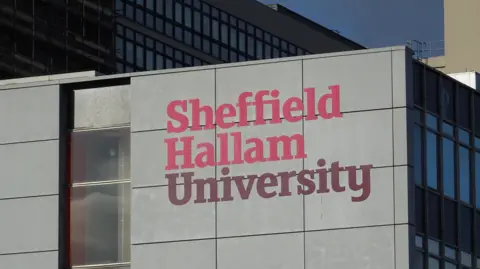
Sheffield Hallam says China is no longer a significant student market for the university
When Prof Murphy returned from her career break in early 2025, the university told her of its "decision not to continue with her research into supply chains and forced labour in China due to .. the corporate insurance position .. and our duty of care to colleagues working in both China and the UK".
Any other work or public engagements outside the university would also have to be checked for "conflict of interest".
Seeking to continue her work, Prof Murphy began her legal action and made a subject access request to the university requiring it to turn over relevant internal documents.
"What about the duty of care to me and the duty of care to the rest of my research team?," Prof Murphy told the BBC.
"They laid off my entire research team. Sent them away. They sent back all of our research funding, and they shuttered the entire programme without regard for the people who worked with us on that project, so many of them Uyghur folks."
She added: "As long as the university system in the UK is so wildly underfunded as it is now, universities will be vulnerable to attacks like this."
After receiving her apology from the university and a pledge to protect her academic freedom, she is not currently pursuing her legal action.
Her case had been built on the Higher Education (Freedom of Speech) Act 2023, which places on universities a duty to promote freedom of speech and academic freedom for their staff.
Her solicitors, Leigh Day, had argued that a lack of insurance and "unspecified" concerns about staff safety do not provide universities carte blanche to restrict freedoms.
The law firm believes refusing to authorise any research on a particular country would be unlawful.
Sheffield Hallam's spokesperson said: "For the avoidance of doubt, the decision was not based on commercial interests in China.
"Regardless, China is not a significant international student market for the university."
The university only enrolled 73 students from China in 2024/25.
The Chinese Embassy said "there are over 200,000 Chinese students in the UK, making China the largest source of international students in the UK," adding "educational cooperation has become a driving force in bilateral ties".
Baroness Helena Kennedy KC, patron of the centre that bears her name, said UK universities were "vulnerable" to pressure from China because "bringing in Chinese students is one of the ways of dealing with the financial crises that universities are facing".
"If we see limitations being made on the kind of research that goes on in these universities, I think we should be alarmed," added the Labour peer, who has herself been sanctioned by China for speaking out about issues related to Xinjiang.
.png)
 10 hours ago
7
10 hours ago
7


